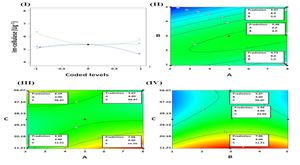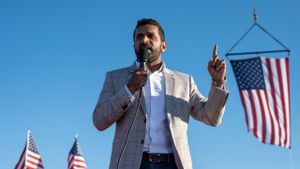The Myanmar military junta has officially announced the extension of the state of emergency for another six months, marking its seventh consecutive extension since it first declared emergency rule following the February 2021 coup. This recent decision was made during the National Defense and Security Council (NDSC) meeting on January 31, 2025, and was proposed by junta chief Senior General Min Aung Hlaing.
Min Aung Hlaing cited the need for national stability and necessary preparations for future elections as the primary reasons for this extension. The NDSC members, which include various key military and governmental figures, unanimously supported the extension under Article 425 of the 2008 Constitution. This move aligns with the junta's pattern of maintaining emergency rule, which has featured recurrent justifications relating to regional stability and the operational needs for upcoming elections.
Since seizing power on February 1, 2021, after alleging widespread fraud during the preceding elections—where the National League for Democracy led by Aung San Suu Kyi achieved significant victory—the military has consistently prolonged emergency rule every six months. Observers note this marks the junta’s continuing struggle to stabilize its control over the country and prepare for the elections it aims to hold by 2025.
While the junta claims to be preparing for elections, the reality on the ground reflects diminished authority and widespread civil unrest. Reports indicate the junta has lost control of more than 90 townships, with growing resistance from pro-democracy groups and armed rebels across various regions, including significant losses of military bases and strategic locations. Particularly noteworthy is the situation in Rakhine State, where the Arakan Army now has full control, significantly impeding the junta’s operational capabilities.
According to the latest census data disclosed by the junta—which revealed only 145 out of 330 planned townships had been fully surveyed—critics argue this lack of comprehensive survey efforts undermines the junta’s credibility to hold free and fair elections. The notion of elections also looms as contentious as military efforts face increasing defiance from various resistance groups. Observers remain skeptical about the junta’s commitment to genuine electoral processes, arguing the political environment suggests such plans may not yield meaningful change.
Reports have indicated distressing trends as armed conflict escalates, with the Resistance factions making considerable territorial gains. Coming reports from the Myanmar Peace Monitor highlight pro-democracy groups currently controlling around 95 cities, indicating the junta's grip on governance continues to weaken. A significant part of Myanmar, especially northern and western regions, has entirely slipped from military control, and resistance groups are aggressively pushing back against the junta’s efforts.
The junta's military setbacks have significantly fueled tensions within the country, leading to widespread anger among civilians fighting against the dictatorship. Pro-democracy protests have gained momentum across the country, demonstrating popular dissent against the military's claims of stability and governance. With over 50,000 lives lost during the continued conflict, the pressing humanitarian crisis remains dire.
International perspectives on the situation continue to weigh heavily on the junta's actions. Following the coup, various countries, including Canada and the U.S., have condemned the military government and imposed sanctions on its leaders, highlighting the junta’s lack of legitimacy on the world stage. Despite these pressures, Min Aung Hlaing has reiterated commitments to holding elections by 2025, projecting confidence surrounding military capabilities to maintain order amid the challenges they face.
The complexity of the situation is reiterated by the junta's recent announcement of elections scheduled for November 2025. Analysts suggest this initiative may be part of efforts by the military to legitimize its power as resistance movements grow stronger and international scrutiny increases. Various civil society organizations have called for tighter sanctions against the junta and more aggressive measures to undermine its strength.
With Myanmar’s military government increasingly isolationist and struggling to address the sins of its coup, opposition forces remain vigilant, fueled by the desire for democracy and reform as they press on against the military’s rule. Unfortunately, the full scope of the conflict remains complex and dangerous, posing risks not only for public safety but also for the stability of the region.
Despite the dire situation and worsening military standings, Min Aung Hlaing continues to project plans for holding elections, insisting on maintaining efforts toward national stability and order. Observers wonder if this will lead to genuine reform or if the situation will spiral even more out of control as military efforts persist to quell growing public dissent.



